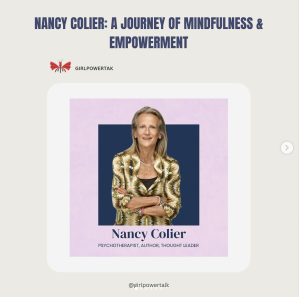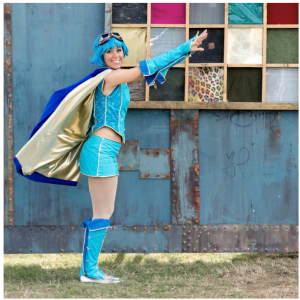We are buried in “shoulds” when it comes to what we’re supposed to do with family members who treat us badly. We’re taught that we should feel grateful for family—no matter what. The fact that a relationship feels toxic or emotionally abusive is irrelevant; it’s family, so it’s sacred.
Ali remembers her sister always being an angry person. After their mother died, her sister’s rage towards Ali turned up to full throttle. With their mother no longer alive, Ali became the identified enemy. In her sister’s eyes, she was guilty of something terrible. The strange thing was that she never understood her crime, never understood what she had done to make her sister treat her with such contempt and vitriol.
Ali went on to have children and create a family of her own, as did her sister. She felt a strong desire for her children to know their cousins, to grow up with them. She also felt a desire to have a sister as she traveled through life. And yet, each time she reached out, went near her sister, she encountered the same angry person she’d known her whole life, the same vindictive, punishing, emotional violence—all aimed at her. Despite never knowing her original “sin” and despite time passing, families being born, people dying, her sister’s rage and negative story on her remained unchanged.
Over the years, Ali continued reaching out, pushing herself to be her “best self,” a person she respected. She continued taking the high road. She believed too, that she should get to a place where her sister didn’t bother her anymore, where she felt only compassion for her. But each time she reached out, she got burned. Each interaction with her sister left her feeling icky, hurt, angry, and disrespected. Communication with her sister meant putting herself in the company of someone whose narrative of her was unrelentingly negative, and entirely out of alignment with who she knew herself to be. Initiating contact meant putting herself in harm’s way.
After another stretch of four or five years without contact, Ali sent a friendly email expressing her wish to say hello and maybe introduce their kids who had never met. The message she received back from her sister was, once again, emotionally violent and filled with rage. In that moment, something shifted and Ali had permission, inside herself, to stop—stop being the “better” person, stop trying to feel nothing, stop trying to prove that she hadn’t done something to cause this. Ali had reached her “enough.” The abuse had become more powerful than any of her “shoulds.”
While it wasn’t the choice she wanted to make, she decided, then, to stop interacting with her sister. It was the only choice that felt respectful and kind towards herself. Her sister’s behavior made her angry, sad, and confused, and probably always would. She might never understand why she was so filled with rage towards her, and she accepted that. But she also knew that she could no longer subject herself to the abuse. Being the “better” person now meant taking care of herself. She could not continue putting herself in harm’s way just to prove to herself that she had moved beyond all of it. The sister she wanted didn’t actually exist, that sister was just an idea. And so, she decided to remove herself from a relationship with someone who was consistently damaging to her sense of well-being.
We hold a strong and damaging misunderstanding in this society: We believe that we are not allowed to say “no,” to draw a self-protective boundary and opt out of an unkind or emotionally abusive relationship—not when it comes to family. We’re taught that it’s not okay to say “enough”—not unless or until we can interact with someone who’s harmed us and feel completely unaffected, un-triggered. We believe that we should get to a place where we can be in relationship with someone who has mistreated us and feel okay—not enraged, not hurt, not baffled, not overwhelmed, and not just plain terrible. For some strange reason, feeling unaffected has become the litmus test for when we have done enough work to warrant ourselves the right to sign off from what feels like toxic.
In Ali’s case, she believed (and was told by other family members) that she should stay in the relationship with her sister, “for the sake” of her kids. It was about her kids and not her. She should be willing to feel terrible so that the kids could have their imaginary relationship with their cousins. It was family, after all.
Perhaps most damaging, when it comes to saying “no” to an emotionally abusive relationship with family, is the belief that we must be partially responsible for the abuse. The idea that it takes two to tango keeps us sucking up abuse and hobbling along in relationships well past their expiration date. Before we can say “no,” we imagine that we have to figure out “our part,” how we’re to blame, responsible for creating the other’s treatment of us. If we close the door on family, there’s got to be something wrong with us we’re not addressing.
Here’s the thing: We have the right to say “no” to what feels abusive, what hurts—even when that abuse, that hurt, comes from family. We may never get to a place where we are unaffected by someone who treated or treats us badly. Feeling unaffected is not the gauge by which to judge anything. When strong emotional pain has occurred, those emotions are stored in our body, specifically our nervous system and amygdala, the body’s emotional memory banks. The fact that the mention of someone’s name or being in someone’s company makes us feel yucky is indicative of nothing other than the fact that our body has absorbed the emotional pain we experienced, that our body has indeed lived this experience. Feeling yucky about or around this other person does not mean we haven’t done the work we need to do or that we’re to blame.
While every relationship is complicated and subjective, nonetheless, we have the right to extricate ourselves from a negative role someone has us cast in in their own internal movie. We don’t need special permission or a secret password to resign from the part of the negative character we’ve been assigned by this other. We don’t have to stick around in a relationship to prove we’re not the terrible person they’re committed to believing we are. We don’t have to keep subjecting ourselves to behavior that feels abusive in order to figure out how to change it or why we’re guilty. Because we are being treated unkindly does not mean that we are responsible for that unkindness. Sometimes unkindness is just unkindness.
We don’t know who we will become in the future. We also can never know who someone else might become. Still, we don’t have to wait for anything to change, or wait to feel immune to the other’s behavior, or wait to understand anything better. We don’t need to earn the right to say “yes” to being unconditionally kind to ourselves and to putting ourselves first. Giving ourselves permission to honor and act from our truth, to take care of ourselves in the face of judgment, to let our experience be what it is and still deem it as worthy, is a profoundly empowering and healing choice. In fact, the decision to say “no”—with our feelings as they are, with reality as it is, and without understanding anything more than we understand right now, can offer us the very freedom we are longing for and futilely searching for in the relationship itself. The choice to say “enough” can be the change that we imagine could happen within the relationship but can actually only happen within ourselves.


